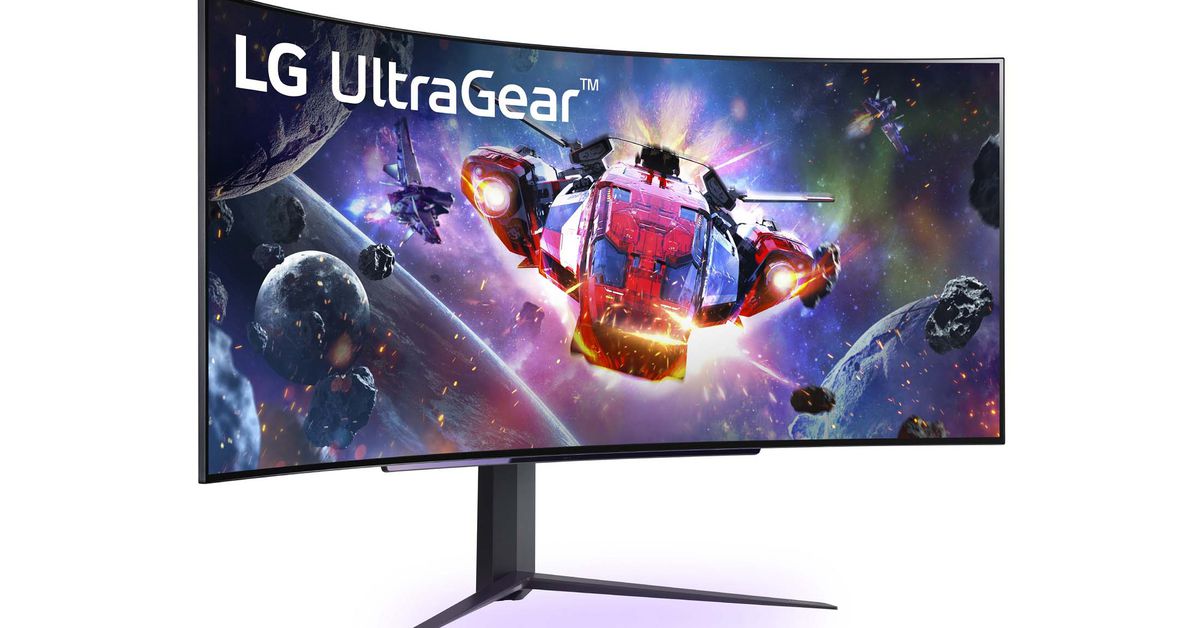
LG has announced a new 45-inch ultrawide OLED gaming monitor with a refresh rate of 240Hz. The company is calling the UltraGear 45GR95QE its “first curved OLED display with a 240Hz refresh rate,” which is notable at a time when most OLED displays (including those with flat panels) are still capped at 120Hz. The company is yet to announce pricing or a release date for the monitor, but plans to show it off at IFA in Berlin next month.
Having a higher refresh rate means a display appears smoother and less juddery, and video games feel more responsive to play — especially when combined with OLED’s near-instantaneous response times. Until recently it was rare to find an OLED display with a refresh rate of over 120Hz, but that’s changed in recent months. YouTube channel HDTVTest reported in May that Samsung’s S95B QD-OLED TV had become the first OLED TV to support a 144Hz refresh rate (albeit unofficially), while Alienware’s AW3423DW monitor, which also uses a QD-OLED panel from Samsung Display, goes all the way up to 175Hz.
Now, however, we’re seeing OLED displays emerge that go all the way up to 240Hz. HDTVTest reported earlier this month that the MSI GE67 HX laptop features the world’s first 240Hz OLED display, and Razer has also announced a 240Hz OLED laptop of its own. Just this week we also saw Corsair announce a 240Hz OLED monitor, although the fact that it can be manually bent into a curved monitor stole some attention away from its high refresh rate.
Away from its refresh rate, the UltraGear 45GR95QE’s other specs include an aspect ratio of 21:9, a curvature of 800R, and the ability to display 98.5 of the DCI-P3 color gamut. It’s got a 1440p resolution, an HDMI 2.1 port with support for variable refresh rates, and an additional DisplayPort 1.4 connector. There are also built-in picture-by-picture and picture-in-picture modes for displaying content from multiple sources side-by-side.
While the refresh rates of OLED panels are improving, they still trail far behind what LCD is capable of. LCD panels with 360Hz refresh rates are becoming increasingly common, and earlier this year we saw the first 500Hz Nvidia G-Sync gaming display announced by Asus.









